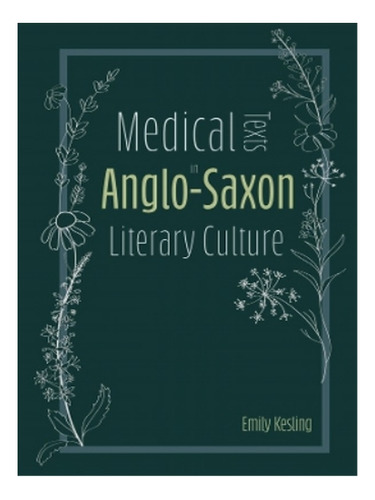Medical Texts In Anglo-saxon Literary Culture - Emily . Eb04
Pagá en cuotas
Disponible 45 días después de tu compra
+500 ventas
Información sobre el vendedor
- +500
Ventas concretadas
Brinda buena atención
Medios de pago
Hasta 12 cuotas sin tarjeta
Tarjetas de crédito
Tarjetas de débito
Efectivo



Descripción
Somos una librería que se dedica a traer libros importados, trabajamos con los principales proveedores internacionales y editoriales, siendo nuestros libros originales y asegurando la calidad del mismo.
Una vez realizada la compra el proveedor envía el libro a nuestro deposito para su despacho, una vez despachado se envían los datos para su seguimiento.
Brindamos garantía sobre nuestros libros y MercadoLibre asegura su dinero hasta que reciba el libro de conformidad.
EL COSTO DE ENVIO ES GRATIS. SE REALIZAN ENVIOS A TODO EL PAIS.
El plazo de entrega del libro hasta su puerta es de 29 días aproximadamente.
Contamos con gran catalogo de libros, si no lo tenemos publicado lo conseguimos.
Cualquier duda o consulta estamos a su disposición.
ESMERALDA BOOKS.
Descripción: Winner of the Best First Monograph from the International Society for the Study of Early Medieval England (ISSEME) 2021.An examination of the Old English medical collections, arguing that these texts are products of a learned intellectual culture. Winner of the Best First Monograph from the International Society for the Study of Early Medieval England (ISSEME) 2021.An examination of the Old English medical collections, arguing that these texts are products of a learned intellectual culture.Four complete medical collections survive from Anglo-Saxon England. These were first edited by Oswald Cockayne in the nineteenth century and came to be known by the names Bald's Leechbook, Leechbook III, the Lacnunga, and the Old English Pharmacopeia. Together these works represent the earliest complete collections of medical material in a western vernacular language. This book examines these texts as products of a learned literary culture. While earlier scholarship tended to emphasise the relationship of these works to folk belief or popular culture, this study suggests that all four extant collections were probably produced in major ecclesiastical centres. It examines the collections individually, emphasising their differences of content and purpose, while arguing that each consistently displays connections with an elite intellectual culture. The final chapter considers the fundamentally positive depiction of doctors and medicine found within literary and ecclesiastical works from the period and suggests that the high esteem for medicine in literate circles may have favoured the study and translation of medical texts.
Preguntas y respuestas
¿Qué querés saber?
Preguntale al vendedor
Nadie hizo preguntas todavía. ¡Hacé la primera!
